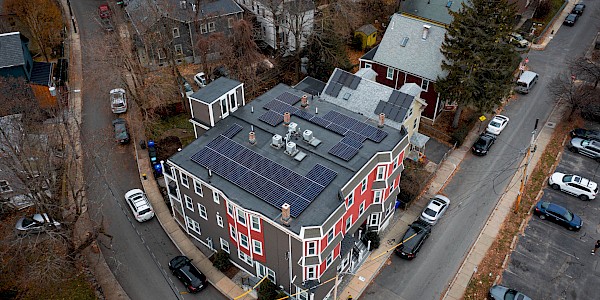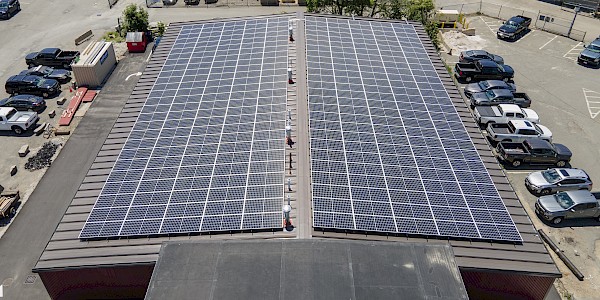Definitions of Solar Terms
Dec. 01, 2016
Blog Post Categories & Tags
Posted: Thursday, 12/1/16 @ 7pm EST
You may be a solar guru or just beginning your exploration of renewable energy. If you are a newbie, here are some basic terms that we at The Boston Solar Company think are critical if you are considering a solar system for your home.
Renewable Energy (RE):
Renewable energy is energy that comes from naturally replenishing sources. This includes sunlight, wind, tide, rain and geothermal heat. These are contrasted with the non-renewable energy sources that we currently rely on like coal, oil and natural gas. Non-renewable sources become more expensive as they become more difficult to find and produce.
Of course, not all renewable energy sources come without consequences. For example hydroelectric dams often create controversy over land ownership and flooding. The wonderful thing about solar power is that we are able to capture energy from the sun without impacting other natural resources or people around you.
Passive Solar Design:
If you are in the process of designing a new home, there are many ways that you can take
advantage of the sun. Consciously including these in your home is termed "passive solar design." Some features to consider when you are designing a building:
-
Positioning a home on an east-west axis and ensuring that the home's south side receives its maximum amount of daylight.
-
Designing interior spaces so that rooms used most frequently are along the building's south face.
-
Conscious choice of window placement and glaze.
-
Taking advantage of thermal mass spaces to absorb, store, and distribute heat.
-
Installing overhangs, selecting windows, and adding insulation to maximize sun (and shade).
-
Planting trees and other vegetation strategically around your home to provide natural shading and buffer from intense heat.
Homes or buildings already built can be retrofitted with passive solar design techniques during renovations or re-landscaping.
Net metering (or reverse metering):
Here's a term we use a lot in the Boston Solar world. "Net metering" refers to the ability to record both power produced and power used. Usually, your utility company does this for you after a solar system installation. They charge customers for the power they use while crediting them for any excess power they generate. Ultimately, this reduces your monthly electricity bill. Your savings will depend on the size of your roof and the solar energy it is able to capture.
Kilowatt-hour (kWh):
A common unit of electric power consumption. One kilowatt-hour equals 1000 watt-hours and is used to define the amount of energy used over a one-hour period. So, a 60-watt incandescent light bulb turned on for one hour uses 60 watt-hours of energy. When your solar system is designed, Boston Solar estimates how many kilowatt-hours your system will produce. We compare this with your past electrical bills and give you a comprehensive view of what savings a solar system will give you.
SRECs:
An SREC or Solar Renewable Energy Credit is a tax incentive used in Massachusetts (and other states). These incentives increase your investment returns (if you own your system) or are aggregated and sold as part of a Power Purchase Agreement (see above).
Photovoltaic (PV):
Photovoltaic (PV) cells consist of parallel clusters of semi-conductive materials. Silicon has been the most frequently used because of it's abundance, however, efficient silicon PV cells have been very costly to make.
In the US, federal, state and local tax incentives (such as the SRECs discussed above) in conjunction with rebates and solar leases have made systems much more economically feasible for homeowners. Costs keep coming down as science refines the production and efficiency of solar technology. These cells are then linked together and into your home solar power system. Here are descriptions/examples of how a residential solar system works and how a commercial solar system works.
Contact us for a free site evaluation.
Questions? Contact:
Natalie Holtgrefe
Director of Marketing at Boston Solar
natalie.holtgrefe@bostonsolar.us
617-858-1645




